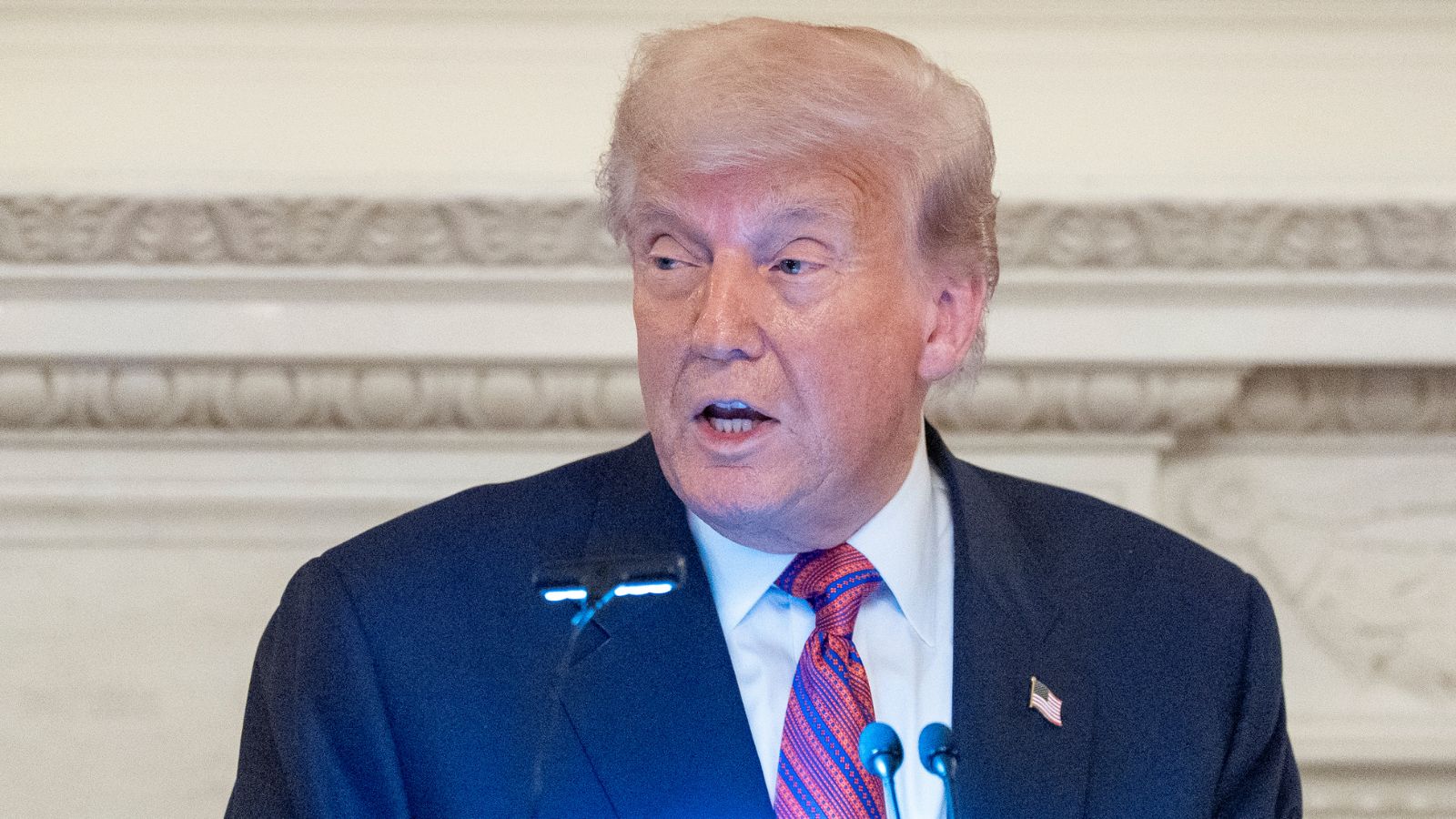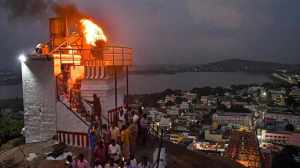Speaking at the White House during a dinner he hosted for Republican senators on Friday, Trump said, “You had India, Pakistan, that was going… in fact, planes were being shot out of the air…four or five. But I think five jets were shot down actually…that was getting worse and worse, wasn’t it? That was looking like it was going to go…these are two serious nuclear countries, and they were hitting each other.”

“But India and Pakistan were going at it, and they were back and forth, and it was getting bigger and bigger. And we got it solved through trade. We said ‘You guys want to make a trade deal. We’re not making a trade deal if you’re going to be throwing around weapons and maybe nuclear weapons. Both very powerful nuclear states,” Trump said.
He said his administration achieved more in six months than almost any other could accomplish in eight years.
“Something I am very proud of, we stopped a lot of wars, a lot of wars. And these were serious wars,” Trump said.
New Delhi has consistently maintained that the two sides halted their military actions following direct talks between their militaries without any mediation by the US.
Since May 10, Trump has repeated his claim at least 20 times on various occasions that he “helped settle” the tensions between India and Pakistan and that he told the nuclear-armed South Asian neighbours that America will do a “lot of trade” with them if they stopped the conflict.
Story continues below this ad
After India launched Operation Sindoor on May 7, targeting terrorist infrastructure in territories controlled by Pakistan in response to the Pahalgam terror attack, four days of military confrontation ended with an understanding on stopping the military actions on May 10.
On May 31, Chief of Defence Staff General Anil Chauhan’s interviews to news agencies Reuters and Bloomberg on the sidelines of the Shangri-La Dialogue security forum in Singapore shed new light on combat operations during Operation Sindoor, going beyond the media briefings by the Indian armed forces during the hostilities.
General Chauhan, while acknowledging Indian losses in the air, underlined that what was more important was why these losses (of aircraft) occurred, and what India did after that.
He spoke of how “we rectified tactics and then went back… in large numbers” to “hit air bases deep inside Pakistan, penetrated all their air defences with impunity, carried out precision strikes”.
Story continues below this ad
General Chauhan told Reuters that the Indian Air Force “flew all types of aircraft with all types of ordnances on the 10th” of May, the day India struck air bases deep inside Pakistan, including the Nur Khan air base in Rawalpindi.
He spoke on similar lines to Bloomberg: “What is important is not the jet being down, but why they were being (downed),” General Chauhan said.
“The good part is that we were able to understand the tactical mistake which we made, remedy it, rectify it and then implement it again after two days… flew all our jets again, targeting at long range,” he said.
General Chauhan’s remark about initial losses in the air, without going into details or giving a count of aircraft lost, was the first official admission of fighter jets being downed in combat operations.
Story continues below this ad
Asked by Bloomberg if the Pakistani claim of downing six Indian jets was correct, the CDS said: “Absolutely incorrect.”
The remarks came exactly three weeks after India and Pakistan agreed on the cessation of military strikes against each other. At no point, during and after the hostilities, has the IAF denied losing any aircraft.
On May 11, a day after the two militaries reached a truce, Air Marshal A K Bharti, Director General of Air Operations, responding to a question at a media briefing, said he would not like to comment on whether India lost any aircraft and cited the prevailing combat situation. He said losses were part of any combat, and the Indian military had achieved all its selected objectives, and all IAF pilots were back home.
Air Marshal Bharti said the Pakistan Air Force lost “a few” aircraft, apart from suffering massive damage to assets and air bases during retaliatory high-precision strikes by the Indian armed forces during the operation.
Story continues below this ad
Trump’s comments came a day after the US on Thursday designated The Resistance Front as a foreign terrorist organisation. US Secretary of State Marco Rubio said in a statement that the Department of State is adding The Resistance Front (TRF) as a designated Foreign Terrorist Organisation (FTO) and Specially Designated Global Terrorist (SDGT). India welcomed the US decision to designate TRF as a designated FTO and SDGT.

































